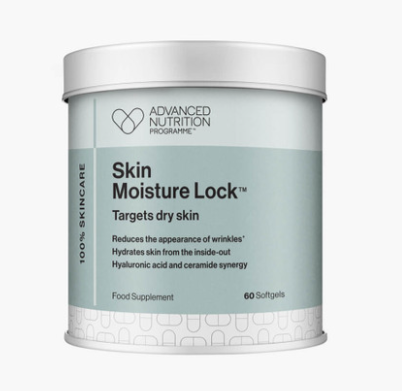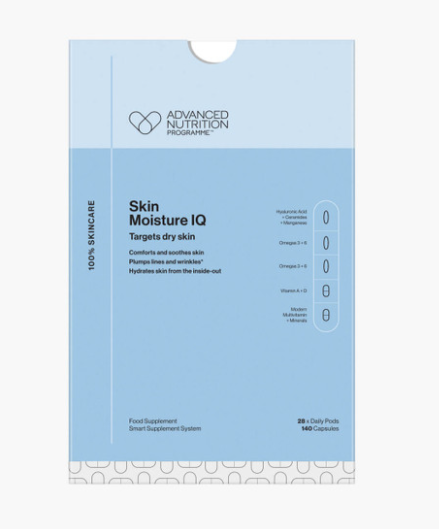Ingredient Spotlight: Ceramides
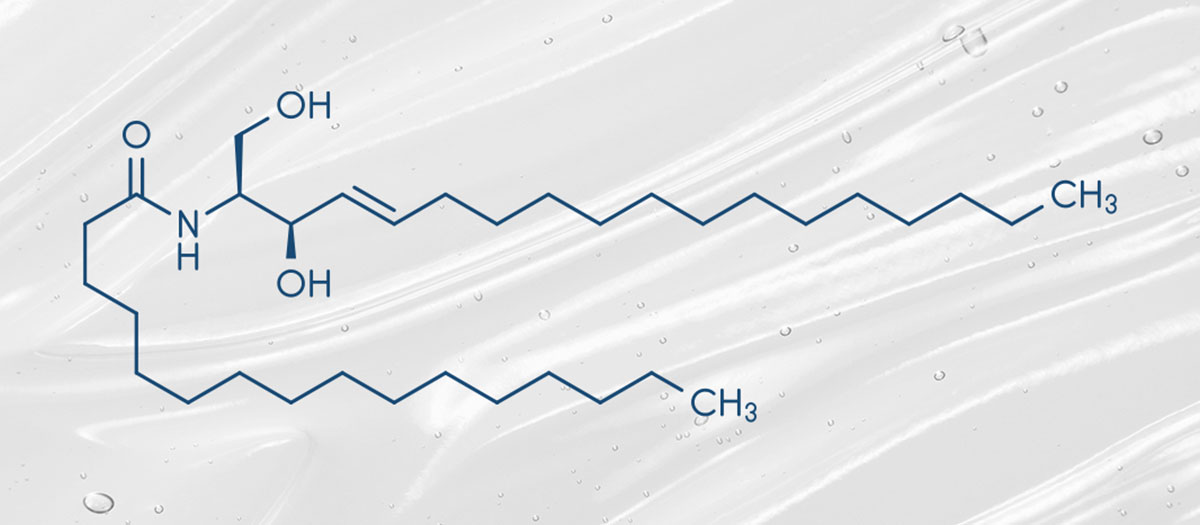
Ceramides: five facts to know
- Ceramides are a family of lipids (aka fats) that naturally occur in the skin
- The molecules form part of the skin’s protective barrier
- Around 50% of the skin’s barrier is made up of ceramides
- Act to “hold together” skin cells, supporting skin health
- Protect and hydrate the skin – keeping the good in and the bad out.
The benefits of ceramides for skin have led to the ingredient being touted as a wonder worker, but do ceramides really work, and what is the truth behind the hype?
Ceramides are a crucial molecule in the skin and play a vital role in maintaining moisture levels in the body. The benefits of ceramides make them a popular skin care ingredient, particularly in anti-aging products and for dry, dehydrated skin, as they can help protect from environmental damage (think pollution, UV rays and stress).
Known primarily as a topical ingredient, ceramides play an equally important role within, and are found naturally in a range of foods, including wheat germ, sweet potatoes, brown rice, eggs and dairy. These ingredients, plus supplements or capsules containing ceramides can help support the skin’s moisture barrier from the inside.
The evidence behind the two key components – ceramides and hyaluronic acid of Skin Moisture Lock™ is compelling.
Our Advanced Nutrition Programme™ experts formulated the patent-pending supplement Skin Moisture Lock™ to take advantage of these properties, and here we share everything you need to know about what ceramides do. How do they work and the best way you can harness their moisture boosting potential.
What are ceramides?
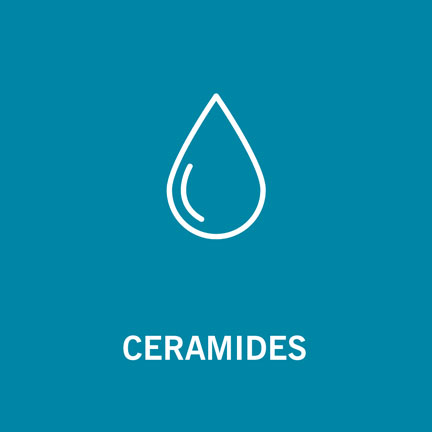
Ceramides are a type of lipid, or fat, that are a major component of the top layer of skin. Similar to its fellow hydration hero hyaluronic acid, ceramides are present in the spaces between skin cells and work alongside collagen and elastin as part of the ‘glue’ that holds them together.
One of their main benefits, and the reason for their anti-aging efficacy, stems from the waterproof, protective barrier they make up on the surface of the skin. This essentially keeps all the good things in and all the bad things out: maintaining skin hydration within the skin while also blocking bacteria and pollutants – very handy for those of us living in urban areas. If the skin’s barrier becomes compromised, it can lead to irritation, dryness and studies have linked badly impaired skin barriers to conditions including atopic dermatitis* and acne**.
Ceramides and hyaluronic acid are miraculous moisturising companions – working in harmony to hydrate and protect skin. Hyaluronic acid attracts water and holds it in the skin for a plumping effect (read more about hyaluronic acid here
, while ceramides help to retain lipid and moisture levels. Combine the two, and you get a formidable anti-ageing partnership.
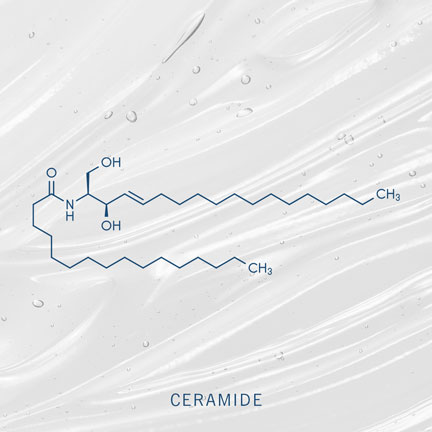
Going, going, gone
Like most other beneficial skin components, including collagen and elastic, ceramide levels dwindle as we age. Without adequate levels of ceramides, the skin’s protective barrier becomes compromised, leaving it more susceptible to damage. Not only this, but low ceramide levels make signs of ageing more prominent: when skin is dehydrated, wrinkles can look much deeper.
External factors such as UV radiation, pollution, poor diet, air conditioning, central heating and weather can also sap our supplies, so it’s important to replenish them – particularly in colder, winter months when many find skin tends to feel more dehydrated.
Asking the experts
Ceramides are commonly found in topical skincare – and are hugely popular in moisturisers, creams and serums combatting dry and aging skin. Lesser known but equally powerful are the evidence-backed results that can be achieved by taking ceramides in supplement form***.
At the Advanced Nutrition Programme™, the patent-pending, anti-aging supplement Skin Moisture Lock™, takes inspiration from the research evidenced benefits of supplementing ceramides and pairs the molecule with hyaluronic acid for additional skin hydration support.
“It takes four years for us to bring a new product to market and the starting point is looking at the research behind the ingredients."
Lorraine Perretta, Head of Nutrition.
“The evidence behind the two key components – ceramides and hyaluronic acid of Skin Moisture Lock™ is compelling.”
Clinical research on the hyaluronic acid element demonstrates that it is fast acting, with an increase in blood levels of hyaluronic acid after just seven days of use.
A study on the ceramide component of skin moisture showed that facial hydration was significantly improved after four weeks. Crow’s feet were reduced after eight weeks and collagen increased by a staggering 48%. Skin roughness and radiance were also significantly improved compared to a placebo group. See additional results from our supplement case studies here
“Although the efficacy of each individual ingredient is remarkable, the results we achieved when we combined them were truly game-changing”, adds Perretta. “Each new launch from the Advanced Nutrition Programme™ has to be rigorously tested before we release it to the market. When we tested Skin Moisture Lock™ in our purpose-built Skin Health Research Centre we saw that this unique combination of ceramides and hyaluronic acid achieved astonishing results”.
SKIN MOISTURE LOCK™
SKIN MOISTURE IQ
Sources
https://www.ncbi.nlm.nih.gov/pmc/articles/PMC6197824/ - ceramides (topical) improve skin hydration
* Kim, Byung Eui, and Donald Y M Leung. “Significance of Skin Barrier Dysfunction in Atopic Dermatitis.” Allergy, asthma & immunology research vol. 10,3 (2018): 207-215. doi:10.4168/aair.2018.10.3.207
** Thiboutot, Diane, and James Q Del Rosso. “Acne Vulgaris and the Epidermal Barrier: Is Acne Vulgaris Associated with Inherent Epidermal Abnormalities that Cause Impairment of Barrier Functions? Do Any Topical Acne Therapies Alter the Structural and/or Functional Integrity of the Epidermal Barrier?.” The Journal of clinical and aesthetic dermatology vol. 6,2 (2013): 18-24.
*** Heggar Venkataramana, S., Puttaswamy, N. & Kodimule, S. Potential benefits of oral administration of AMORPHOPHALLUS KONJAC glycosylceramides on skin health – a randomized clinical study. BMC Complement Med Ther 20, 26 (2020). https://doi.org/10.1186/s12906-019-2721-3

